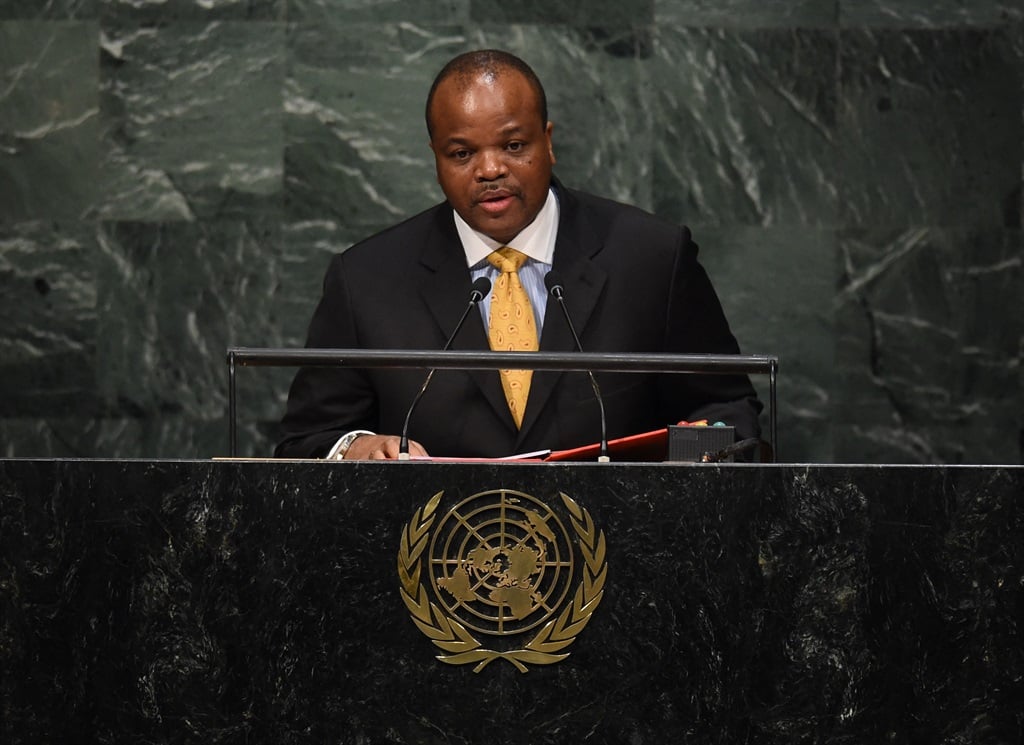

- Eswatini’s removal from the SADC agenda last year was a betrayal of human rights and democracy reforms, according to a Human Rights Watch report.
- It also states that South Africa is failing to deal with migration issues and xenophobia, putting foreigners at risk.
- It has also touched on continued kidnappings political violence and the arbitrary arrest of opposition activists in Zimbabwe.
Southern African leaders have come under sharp criticism in the Human Rights Watch (HRW) 2023 report, with claims that they have failed to address the abuse of civilians.
The report, which was released on Thursday, cited the refusal of Eswatini’s King Mswati III to engage in dialogue, South Africa’s failure to protect migrants, Mozambique’s ongoing conflict with insurgents in Cabo Delgado, and Zimbabwe’s lack of meaningful steps to uphold rights.
Last year, Eswatini continued to experience pockets of resistance from pro-democracy activists calling for the king’s removal from southern Africa’s last absolute monarchy.
In 2021, the king was brought to the negotiation table by President Cyril Ramaphosa to agree on a national dialogue.
At the time, Ramaphosa was chairperson of the Organ on Politics, Defence and Security Cooperation of the Southern African Development Community (SADC).
In principle, the king agreed. But along the way, he found a way to remove Eswatini from SADC’s agenda.
READ | Host Egypt’s human rights record in spotlight at COP27
“In April (2022), the king removed Eswatini from the agenda of the SADC Organ’s Troika meeting where the national dialogue was supposed to be discussed. The July SADC extraordinary summit was postponed without further notice due to the unavailability of Eswatini, which was on the agenda,” HRW said.
The non-governmental organisation cited this as the highlight of Eswatini’s failure to address the ongoing human rights crisis.
Eswatini will hold Tinkhundla elections this year, an electoral system that serves as a form of governance on the basis of traditional administrative subdivisions.
But the Mass Democratic Movement (MDM), under the Swaziland Multi-Stakeholder Forum, adopted the eBundu Declaration at a two-day gathering in Mpumalanga, South Africa in December last year to outright reject and boycott the elections.
South Africa, the region’s flagship economy, is faced with an influx of refugees and illegal immigrants from less prosperous countries, such as Zimbabwe, Mozambique and Lesotho. Some come from as far as the Horn of Africa.
Despite having the best refugee policy on paper, which allows refugees to live outside compounds and even look for jobs, the South African government has been criticised for failing to address xenophobia decisively.
Several high-profile politicians, including ActionSA leader Herman Mashaba and Patriotic Alliance head Gayton Mackenzie, have come under fire in the past for comments that critics claim stoked xenophobic sentiments.
The report states:
The government’s efforts to curb xenophobic violence has yet to yield tangible improvement in the protection of migrants. Anti-foreigner groups perpetuate the unsubstantiated notion that foreigners are responsible for unemployment and crimes in the country.
Mozambique has been in the global spotlight for its oil and gas deposits in Cabo Delgado, the country’s northernmost province.
The region has already supplied Europe with liquefied natural gas (LNG) to Europe in the face of an energy crisis induced by the war in Ukraine.
Historically, Cabo Delgado is the most underdeveloped and marginalised province.
But the interest brought by the resource discovery attracted international corporations.
The government has been accused of continuing to sideline locals, sowing the seeds for the insurgency by terrorist-backed groups.
READ | Uganda turns 60: Museveni clocks 36 years in power after 1986 coup
Even though SADC and Rwanda sent troops to fight the insurgents in 2021, the situation remained volatile last year.
“The humanitarian situation in northern Mozambique worsened as attacks by an Islamic State-linked group, known locally as Al-Shabab or ‘Mashababos’ led to a spike in abductions and destruction of homes by the armed group,” HRW said.
Thousands have been forced to flee their homes in the Cabo Delgado due to the violence. By the end of August last year, more than 946 000 people were internally displaced.
Zimbabwe
Job Sikhala, a Zimbabwean opposition politician, is now the face of political prisoners in the country.
He has been in detention for half a year and has been denied bail.
Due to that and numerous other incidents of alleged state repression, the HRW said: “The human rights climate in Zimbabwe deteriorated in 2022 without the government taking any meaningful steps to uphold rights and ensure justice for serious past abuses primarily committed by state security forces.”
Political violence and the abduction of opposition activists have not stopped and “there has been little progress on investigations into abductions, torture, arbitrary arrests, and other abuses against opposition politicians and activists”.
READ | EXPLAINER: Why the AU-led Ethiopian peace talks hang in the balance
Zimbabwe’s constitution requires the government to pass the Independent Complaints Commission Bill, creating a Chapter 9 institution tasked with receiving and investigating public complaints against the security services.
The government is yet to do so.
The News24 Africa Desk is supported by the Hanns Seidel Foundation. The stories produced through the Africa Desk and the opinions and statements that may be contained herein do not reflect those of the Hanns Seidel Foundation.
